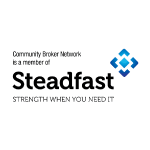Don’t Let Business Blind Spots Catch Your SME Off Guard
For Australian SMEs, the biggest threats aren’t always the ones making headlines. Inflation
.png) and
cyber-attacks grab attention, but it’s the unseen risks that can do the most damage.
and
cyber-attacks grab attention, but it’s the unseen risks that can do the most damage.
Major legal firms, including Allens, warn that geopolitical shocks, AI governance failures and reputational vulnerabilities are accelerating alongside traditional economic pressures.
Cyber and AI Beyond the Basics
Digital transformation has emerged as the primary business challenge for Australian companies in 2025. More than half (53%) of leaders identifying it as their top priority, says KPMG.
The Australian Signals Directorate’s 2023–24 Annual Cyber Threat Report reveals cybercrime reports increased 23 percent to over 94,000 incidents. That’s about one attack every six minutes.
Many SMEs assume their basic safeguards are enough, overlooking how AI tools and third-party vendors expand their attack surface. Weak AI governance can cause data leaks or harmful automated decisions — and those missteps can quickly trigger notifiable breaches under the Privacy Act.
Supply Chain and Integration Gaps
Supply chain vulnerabilities have intensified, with extreme weather events causing cascading disruptions. The February 2025 Queensland flooding severed the Bruce Highway for three weeks. The disaster cost businesses an estimated $45 million daily in delayed shipments. All up, lost exports across all impact sectors slashed $2 billion off the value of production.
Growth often means adding more partners, platforms and integrations.
Be wary of shadow IT, such as unverified APIs or weak contract clauses that can leave hidden weak links. A single vendor outage can disrupt operations or introduce risks you didn’t anticipate.
Reputation, ESG, and Regulatory Blind Spots
Litigation related to environmental, social and governance issues is the fastest-growing category of business disputes. In 2024, there were 47 new cases with high-profile settlements showing real financial consequences.
Reputational damage now spreads faster via social channels. Over half of Australians say they would abandon a brand after one negative incident.
Meanwhile, new climate-related disclosure rules came into effect in January 2025. Large entities must publish detailed sustainability reports. There is a phased implementation for other organisations. Treasury defines ‘large entities’.
While the new rules apply to large entities, the flow-on effects are already reaching SMEs. To stay in the game, smaller businesses will need to track and report basic climate data, so they can meet customer and contract requirements tied to sustainability reporting.
Think energy use, emissions, and supply chain impacts. Those SMEs that don’t may find themselves locked out of lucrative supply chains as compliance expectations tighten. The Australian Securities & Investments Commission (ASIC) gives a rundown of the sustainability reporting requirements for SMEs. Check out the SME Climate Hub, too. Also, consider comprehensive carbon management platforms such as ClimateCover, Trace Carbon Management, or Seedling Earth.
How to Start Mapping Blind Spots
You don’t need to overhaul everything at once. Try these steps to surface hidden gaps:
- Stress: Run internal stress tests, such as vendor outages, AI errors, or compliance audits.
- Audit: List all software, integrations, and tools in use (official and shadow).
- Record: Maintain an obligations register. This records all material (legal and contractual obligations of the business) and assigns key controls and accountability to adequately manage those obligations. New or amended regulatory obligations are simply added to the register with key controls updated accordingly.
- Review: Check contracts for weak liability, breach, and data clauses.
- Train: Update policies and make sure teams know which tools to use and how to report issues.
- Scenario: Run tabletop exercises that include cyber, reputational, or supply chain incidents.
These actions reveal weak links and let you strengthen them before something goes wrong.
Why Working With Us Matters
If you’re tempted to go straight to insurers or comparison sites to fill these gaps, think twice. Many insurers still don’t fully understand or cover emerging blind spots like AI, ESG, or integrated tech.
Working with us helps because we can:
- Identify: Spot exposures your business may currently overlook
- Recommend: Find innovative endorsements that match your real operations
- Coordinate: Align coverage with your tech, legal and operational needs
We can work with you to uncover hidden threats and test whether your policies will really hold up to the newer exposures. Let’s start that
process together.
Important notice
This article provides information rather than financial product or other advice. The content of this article, including any information contained in it, has been prepared without taking into account your objectives, financial situation or needs. You should consider the appropriateness of the information, taking these matters into account, before you act on any information. In particular, you should review the product disclosure statement for any product that the information relates to it before acquiring the product.
Information is current as at the date the article is written as specified within it but is subject to change. BICS make no representation as to the accuracy or completeness of the information. Various third parties have contributed to the production of this content. All information is subject to copyright and may not be reproduced without the prior written consent of BICS.



